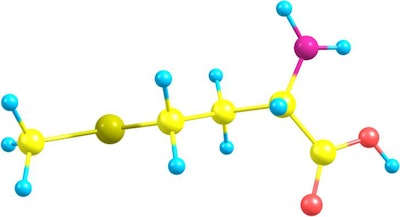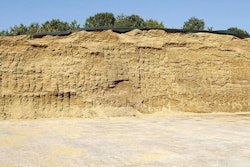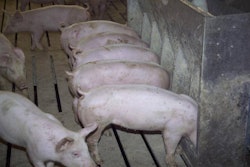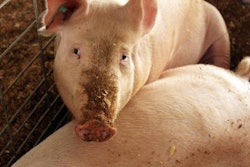
China’s Commerce Ministry said it has launched an anti-dumping investigation into methionine products imported from Singapore, Malaysia and Japan, according to reports. The investigation began April 10 and is expected to last a year.
Methionine, an essential amino acid, is used in animal feed, human medicine and the food sector. In animals, methionine needs to be ingested with the feed. As a feed additive, it contributes to efficient, healthy and more sustainable nutrition of farm animals, especially poultry and pigs.
According to Xinhua, the investigation was launched after the ministry received an application from Ningxia Unisplendour Tianhua Methionine Co. Ltd., which was registered and established in Zhongwei in northwestern China's Ningxia Hui autonomous region in June 2013.
The investigation will look into possible dumping during calendar year 2018, as well as whether the domestic industry suffered losses in calendar years 2016-2018 as a result of dumping.
Evonik, a manufacturer of a methionine feed additive product for animals, said in a press release that it “fully supports the investigations and will provide competent bodies with all the necessary information and data. The company will cooperate fully the ongoing investigation, while being confident with respect to its outcome.”
Evonik manufactures its methionine product, MetAMINO, in Belgium, the U.S., Singapore and Germany, and supplies customers in more than 120 countries.
Investigation into DDGS tariffs
China’s Ministry of Commerce also said this week that it will review its anti-dumping tariffs on import of dried distillers grains (DDGS) from the U.S.
The U.S. Grains Council asked the ministry to terminate its anti-dumping and anti-subsidy tariffs on DDGS from the U.S.
According to Reuters, China bought 3 million tons of DDGS in 2016, worth $684 million. Most of the country’s DDGS imports were from the U.S.
China set anti-dumping tariffs of between 42.2 percent and 53.7 percent on U.S. DDGS in January 2017, up from 33.8 percent in preliminary duties implemented in September 2016, Reuters reported. Anti-subsidy tariffs range from 11.2 percent to 12 percent.
















